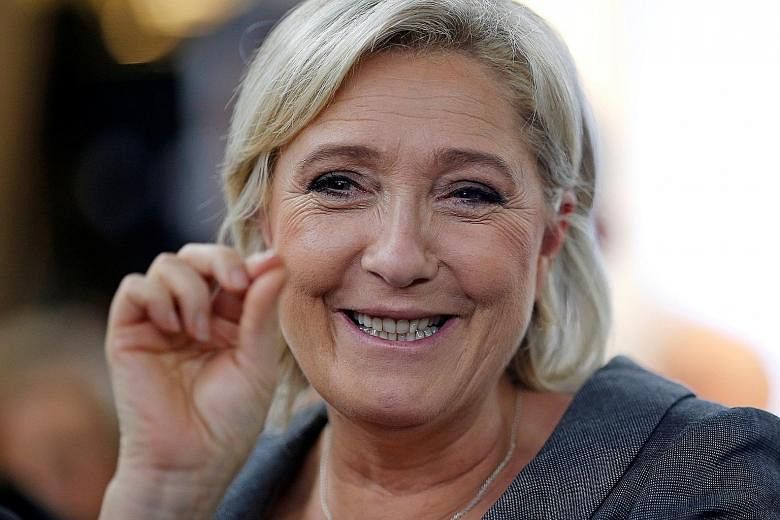LONDON • "Well done, Britain!" was how an ecstatic Marine Le Pen, leader of the far-right, anti-migrant National Front party in France, reacted when told about British voters' decision to pull out of the European Union (EU).
Her joy is understandable, for Britain's EU referendum outcome is seen by nationalist and populist movements throughout Europe as proof that it is possible to win even if one is branded a racist, even if the entire media and political establishment is against you, and even if economic logic points in a different direction.
In the Netherlands, the Party for Freedom led by Geert Wilders, recently convicted for inciting ethnic discrimination, leads in the polls in the run-up to the country's March general election.
Next door in Germany, another populist anti-EU and anti-immigration movement, the Alternative for Germany, is projected to win an astonishing 12 per cent of the vote in parliamentary ballots scheduled for next October.
And then there is Ms Le Pen, the doyenne of the far-right movements, who now has the best chance of becoming president when her own country goes to the polls in April and May.
Still, caution is advisable when predicting that a populist tsunami is about to sweep through Europe.
To start with, Britain's rebellion against the establishment is different. Its anti-EU campaigners are fervent supporters of international trade and globalisation and believe in capitalism and free markets, while European populists usually oppose these things. And conversely, while most European populists are suspicious about the EU, nobody is obsessed about the topic as much as the British.
Electoral systems are also different. Even if it wins the largest share of votes, the Netherlands' Party for Freedom can enter the government only as part of a coalition, which means that it will have to compromise. Regardless of how many seats it captures, the Alternative for Germany is guaranteed not to be part of any coalition.
And Ms Le Pen will have to come out tops in two rounds of presidential elections, so she will ultimately have to get over 50 per cent of the votes to become president - a tall order.
The chances are better than even, therefore, that the populist onslaught will fail in Europe in 2017. But similar predictions were made about Britain's referendum, and about Mr Donald Trump's electoral chances.


